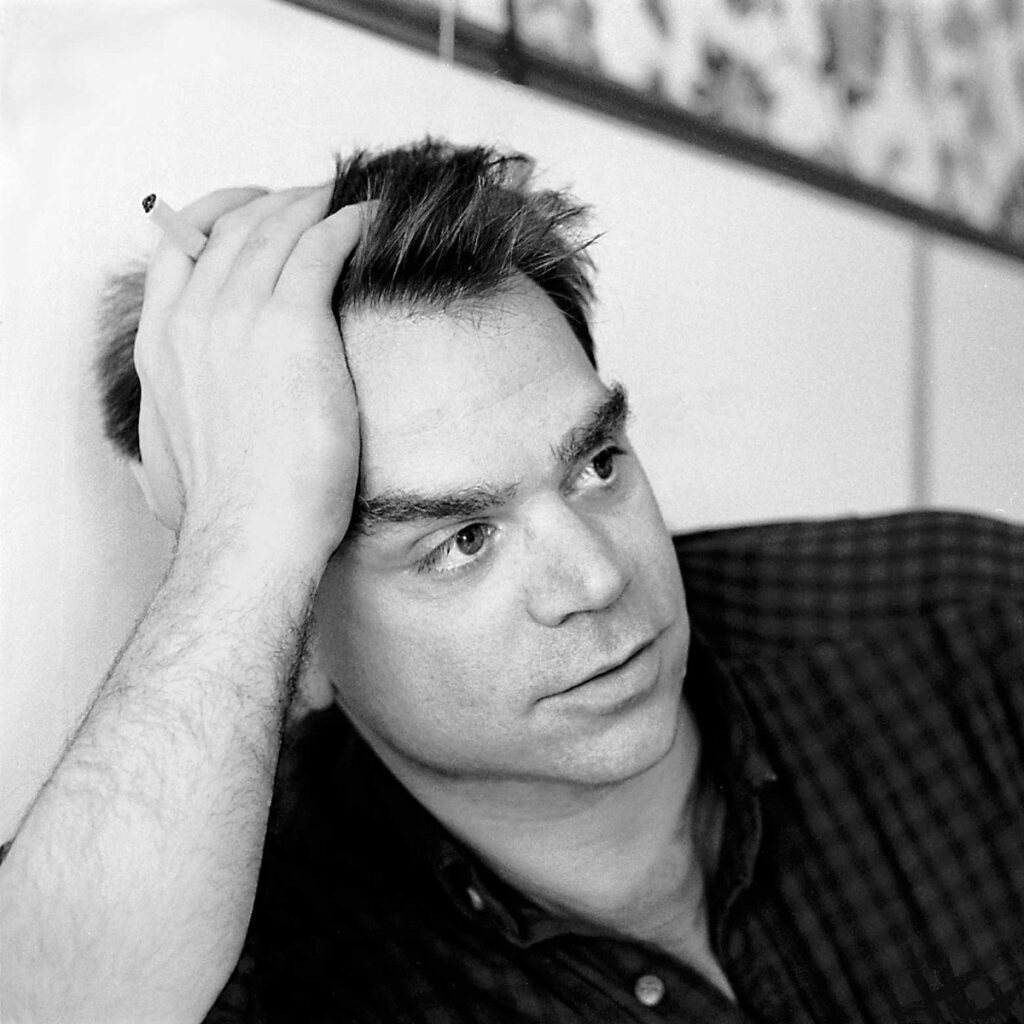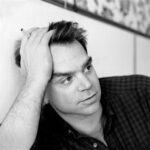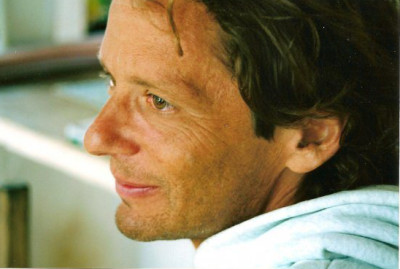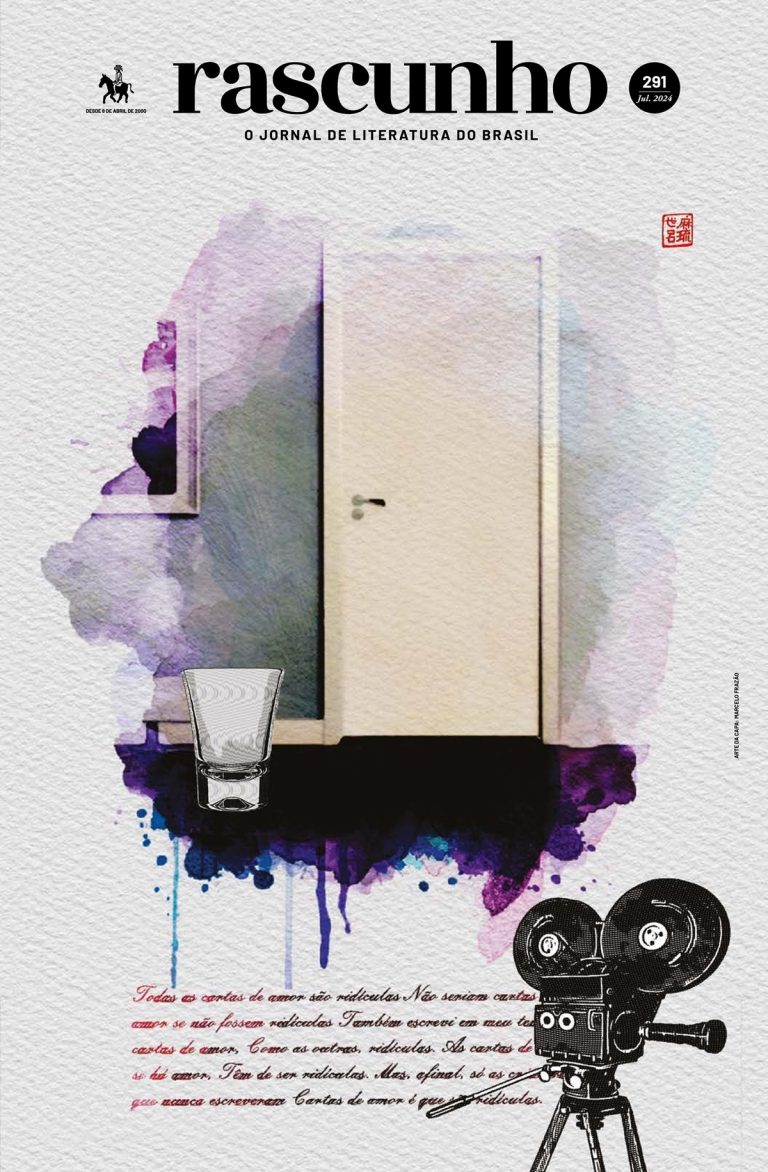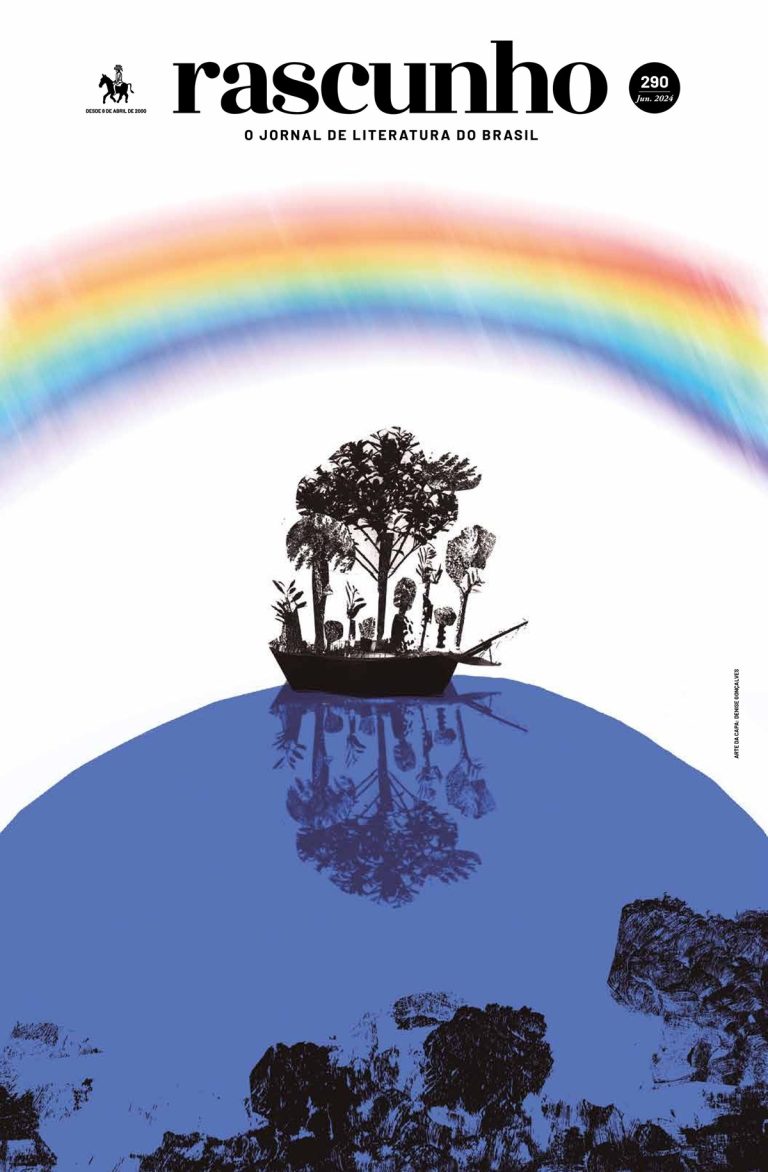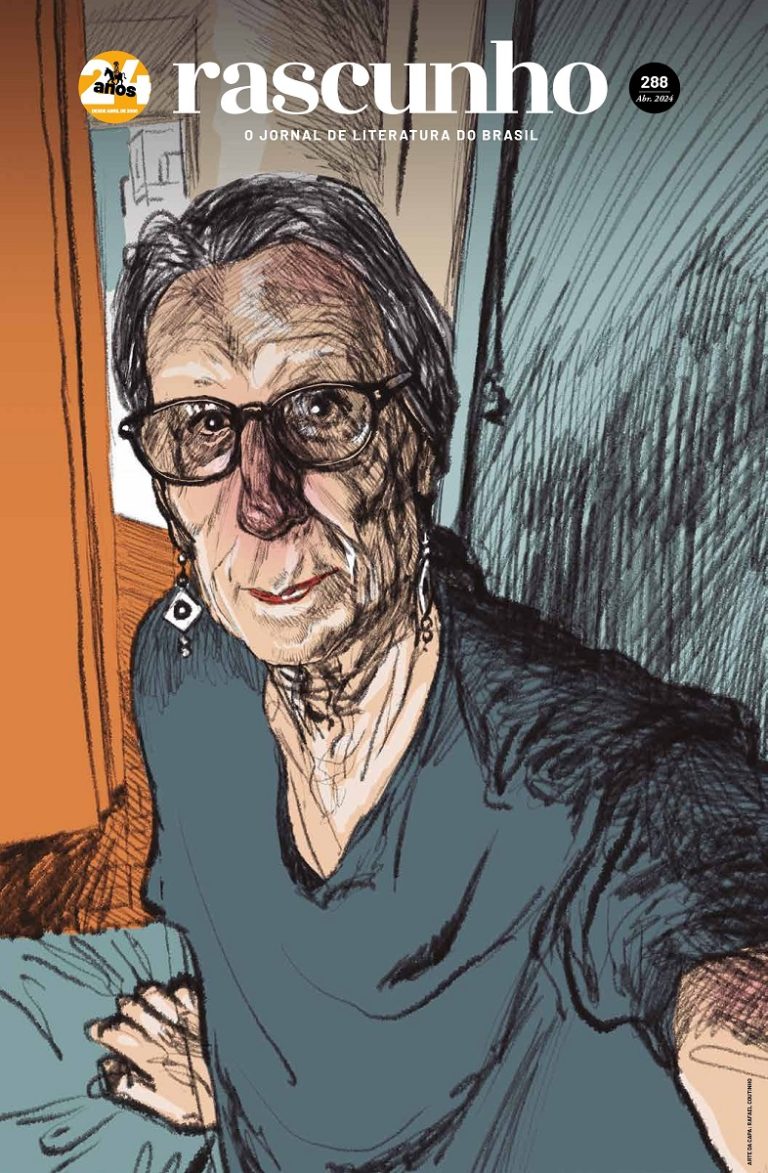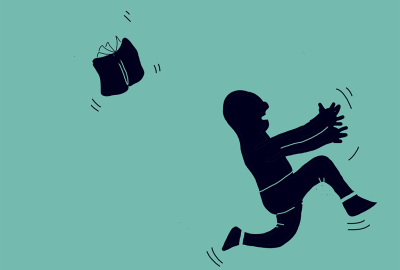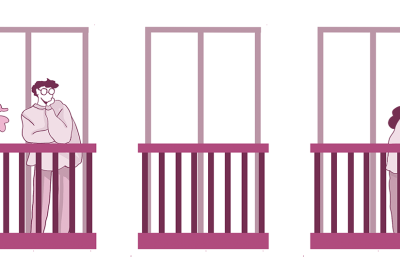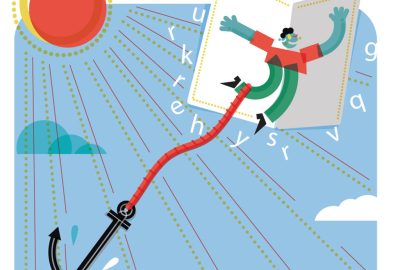Tradução e seleção: André Caramuru Aubert
In defense of nothing
I guess these trailers lined up in the lot off the highway will do.
I guess that crooked eucalyptus tree also.
I guess this highway will have to do and the cars
and the people in them on their way.
The present is always coming up to us, surrounding us.
It’s hard to imagine atoms, hard to imagine
hydrogen & oxygen binding, it’ll have to do.
This sky with its macular clouds also
and that electric tower to the left, one line broken free.
Em defesa de nada
Eu acho que estes trailers alinhados no estacionamento junto à estrada vão rolar.
Eu acho que aquele eucalipto arqueado também vai.
Eu acho que esta estrada vai ter que rolar, e os carros
e as pessoas dentro deles em suas viagens.
O presente está sempre vindo em nossa direção, nos rodeando.
É difícil imaginar átomos, difícil imaginar
hidrogênio & oxigênio se combinando, isso vai ter que rolar.
Este céu com suas nuvens de mácula também,
e aquela torre de eletricidade à esquerda, com um fio solto.
…..
Periplum
Put your map right with the world
The person who knows where
has made an accurate study
of here
As to know
implies a different reading
Somewhere
faith enters
and must be pinned and sighted
A church tower is good for reference
but losing ground
Still
satellites orbiting the earth
track a true arc
but perhaps too grand
for everyday distances
And never mind about the bewilderment
“I’m at sea”
Periplum
Deixe o seu mapa alinhado com o mundo
A pessoa que sabe onde
fez um estudo detalhado
Daqui
Porque saber
implica uma leitura diferente
Em algum lugar
entra a fé
e deve ser apontada e avistada
Uma torre de igreja é boa para referência
mas perdendo terreno
Ainda
satélites orbitando a Terra
marcam um compasso preciso
mas talvez grande demais
para distâncias rotineiras
E não se importam com a falta de orientação
“Eu estou no mar”
…..
Still life with automobile
He was going to take it to the next town.
Though the park was empty
the pond bristled with life. He had
not an answer within 100 sq. acres
or it was only answers that tweeted about.
Who was this lonely figure in a landscape
and once he is made known
would the narrative slack and come
to a warm bed and slippers?
It was no no and yes yes all afternoon
on the thruway. It was a big state said the signs
and so did the sky say big state.
Natureza morta com automóvel
Ele pretendia ir até a próxima cidade.
Embora o parque estivesse deserto
o lago se eriçava com vida. Ele não
tinha uma resposta dentro de 100 acres
ou eram apenas respostas sobre as quais piavam.
Quem era aquela figura solitária na paisagem
e quando ela se fizesse conhecer
será que a narrativa se afrouxaria e iria
para uma aconchegante cama com chinelos?
Foi não não e sim sim a tarde inteira
na autoestrada. Era um grande estado diziam as placas
e também o céu disse grande estado.
…..
Poem for John Wieners
I am not a poet
because I live in the actual world
where fear divides light
I have no protection against
the real evils and money
which is the world
where most lives are spent
I am not a poet
because I cannot sing about
lost kingdoms of righteousness
instead I see a woman in a blue parka
crying on the street today
without hope from despair
I am not a poet
for there is nothing I can say
in smart turns to deflect
oncoming blows of every day’s
inexistence that creeps into
the contemporary horizon
I am not a poet
but a witness to bear the empty
space that becomes our hearts
if left to loiter or linger
without a life to share
I’ve seen sorrow on joy street
and heard the blur of the hurdy-gurdy
and I too know what evening means
but this is not real — poetry is
and from this have I partaken
as my eyes grow into the evolved dark
Poema para John Wieners
eu não sou um poeta
porque eu vivo no mundo real
onde o medo divide a luz
eu não tenho defesas contra
o verdadeiro mal e o dinheiro
que é o mundo
no qual a maioria das vidas é gasta
eu não sou um poeta
porque não consigo cantar sobre
reinos perdidos de justiça
em vez disso eu vejo uma mulher numa jaqueta azul
chorando hoje na rua
sem fé sem esperança
eu não sou um poeta
porque não há nada que eu possa dizer
em curvas espertas para desviar
das pancadas da inexistência
que rasteja todos os dias rumo
ao horizonte contemporâneo
eu não sou um poeta
mas uma testemunha a carregar
o vazio que se tornam nossos corações
se deixados ociosos ou hesitantes
sem uma vida para compartilhar
Eu vi tristeza na rua da alegria
e ouvi o som confuso do realejo
e também eu sei o que a noite representa
mas isto não é real — a poesia é
e disso eu tenho feito parte
conforme meus olhos na escuridão florescem
…..
Will call
There is an order to the skyline. Beyond this
a ragged blank. The present evaporates
into day. Settles about shoulders and cries.
The phone rings. A car honks. Others
pass in the outline of slate. It was an average day.
An arrangement of place. A state of report
or a state of grace. For centuries weeds have hidden it.
Now autumn. Silence is what we make
of eyes, trees and growing vine. It pierces.
And these are the stories they will bring in boxes.
Chamado
Existe uma ordem na linha do horizonte. Depois disso
um vazio escabroso. O presente se dissolve
no dia. Se acomoda sobre os ombros e chora.
O telefone toca. Um carro buzina. Outros
passam num esboço de lousa. Foi um dia comum.
Um lugar arranjado. Um estado de relatar
ou um estado de graça. Por séculos o mato escondeu isso.
Agora, outono. Silêncio é o que fazemos
dos olhos, árvores e videiras que crescem. Isso espeta.
E estas são as histórias que eles trarão em caixas.
…..
Edgar Poe
Winter’s the thing.
A place to lay one’s head.
To sleep at last
to sleep. Blue on flesh
in snow light,
iced boughs overhead.
This is a poem about breath,
brick, a piece of ink
in the distance.
Winter’s the thing
I miss. The font is still.
A fanfare of stone air.
Edgar Poe
Inverno é o lance.
Um lugar para repousar a cabeça.
Para finalmente dormir
para dormir. Azul na carne
na luz da neve,
galhos congelados sobre a cabeça.
Este é um poema sobre respiração,
tijolos, um fragmento de tinta
ao longe.
Inverno é o lance
que me faz falta. A fonte está quieta.
Uma fanfarra de ar empedrado.
…..
Basement song
Out of the deep
I dreamt the mother.
How deep the mother
deep the basement
the body, odor of laundry
the soul of a bug.
The grass inside
the song stains me.
The mother stains me.
That was the year
they cut my throat
and toads bloomed
on my voice box.
I have kept my head up.
Have kept myself
out of trouble
but deep is trouble
deep is mother.
Deep the song
inside summer.
Did I tell you it hurt
accepting air in a new body?
And since the change
the air burns.
Canção do porão
Lá das profundezas
eu sonhei com a mãe.
Quão profunda a mãe
profundo o porão
o corpo, cheiro de lavanderia
a alma de um inseto.
A grama dentro
da canção me mancha.
A mãe me mancha.
Aquele foi o ano
em que eles cortaram minha garganta
e os sapos floresceram
dentro da minha laringe.
Eu fiquei de cabeça erguida.
Fiquei
longe de problemas
mas profundeza é problema
profundeza é mãe.
Profunda a canção
dentro do verão.
Eu te contei que dói
absorver ar em um novo corpo?
E desde a mudança
o ar queima.
…..
Reverse song
Not because there is a road
and a woman walking
nor the trees lining this road,
the light at half-mast
not the birds in v crayon
not the uneven houses lit up from within
not even the clapboards’ chipped paint
nor the fact she is not alone
in the cricket sound
not the sun setting nor a first star
not the lawns fading to black
nor the broken sidewalk,
dented signs, new blacktop
not the atmosphere
amped after showers
not the catcalls making one stranger
nor the river gaining volume
making all sentient things still
crossing a bridge
not the lamp’s sudden flame
but the type of daisy
robins live among,
circle of light found on the table,
her gait, her motion, her speed.
Canção ao revés
Não porque há uma estrada
e uma mulher caminhando,
nem as árvores alinhadas na estrada,
a luz a meio-pau.
não os pássaros em formação de v
nem as casas desiguais iluminadas por dentro
nem mesmo a pintura descascando nas paredes
nem o fato de que ela não está sozinha
ao som dos grilos
nem o sol se pondo nem uma primeira estrela
não os gramados ficando escuros
nem as calçadas estragadas
placas esburacadas, asfalto novo
não a atmosfera
energizada depois do aguaceiro
nem os assobios causando incômodo
nem o rio ganhando volume
fazendo com que todas as coisas delicadas ainda
atravessem a ponte
não a súbita chama da lamparina
mas o tipo de margarida
na qual vivem os passarinhos
círculo de luz marcado na mesa,
o jeito como ela caminha, como se move, o ritmo.

